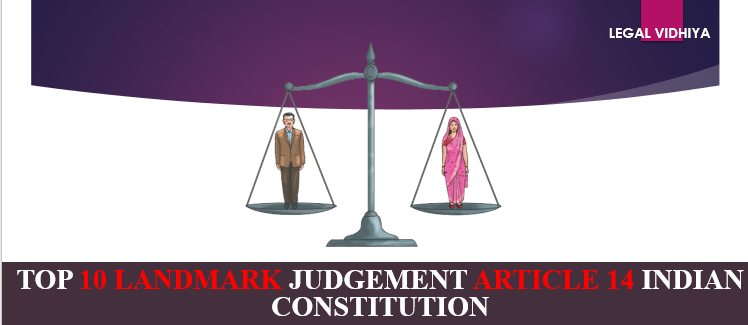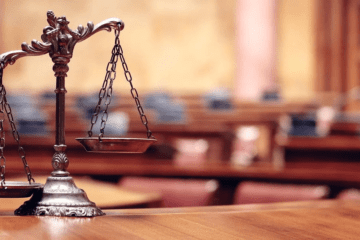
State of West Bengal v Anwar Ali Sarkar, 1952 AIR 75 SC
The West Bengal Special Courts Act, 1950 was instituted to provide for the speedier trial of certain offences. Section 3 of the Act empowered the State Government to constitute special Courts and Section 5, whose constitutionality was impugned allowed these Special Courts to try such offences according to the directions of the State Government. Section 5 was challenged on the ground that there was no object for making the classification between different offences under the Act.
The Supreme Court invalidated the Act because it conferred arbitrary powers in the government to classify offences or classes of offences at its pleasure. The Act did not lay down any policy/guideline for classification of such offences. As a result of the provision, different treatment was granted to the appellant. The necessity of a speedy trial was too vague and uncertain a criterion to form the basis of a valid and reasonable classification. This case was one of the initial cases to lay down the foundational principles of Article 14.
Magan Lal Chaggan Lal v Municipal Corporation of Greater Bombay, AIR 1974 SC 2009
This provided needed clarification to the reasonable classification test. Here, the court made a distinction between the statute which themselves make a classification and those which authorize the executive to make a classification. In the first case, the statute will be invalid if it fails to meet the reasonable classification test. In the latter case, if the statute provides guidelines, whether express or implied, to the executive to make classification, and the executive fails to meet the test, only the action will be invalid and not the statute itself.
Maneka Gandhi v UOI, (1978) 1 SCC 248
The seven-Judge Bench held that a triumvirate exists between Article 14, Article 19 and Article 21. All these articles have to be read together. Any law interfering with personal liberty of a person must satisfy a triple test: (i) it must prescribe a procedure; (ii) the procedure must withstand the test of one or more of the fundamental rights conferred
under Article 19 which may be applicable in a given situation; and (iii) it must also be liable to be tested with reference to Article 14. As the test propounded by Article 14 pervades Article 21 as well, the law and procedure authorizing interference with personal liberty must also be right and just and fair and not arbitrary, fanciful or oppressive. If the procedure prescribed does not satisfy the requirement of Article 14 it would be no procedure at all within the meaning of Article 21.
Indra Sawhney v UOI, AIR 1993 SC 477
This is a landmark judgment on aspects of reservation in India. The Court interpreted the relation between Article 14 and Article 16. It was held that Article 16(1) is a facet of Article 14. Just as Article 14 permits reasonable classification, so does Article 16(1). A classification may involve reservation of seats or vacancies. The principle aims of Article 14 and 16 is equality and equality of opportunity and Clause (4) of Article 16 is a means of achieving the very same objective. Both the provisions have to be harmonized keeping in mind the fact that both are the restatements of the principle of equality enshrined in Article 14.
Air India v Nargesh Meerza, [1978] 2 SCR 621
Air India, a state-owned company, required female flight attendants to retire under three circumstances: (1) upon reaching 35 years of age, (2) upon getting married, or (3) upon first pregnancy. The same rules were not applicable to male attendants. The Court struck the rules down, holding that these requirements constituted official arbitrariness and hostile discrimination in violation of Article 14.
National Legal Service Authority [NALSA] v UOI, AIR 2014 SC 1863
This case was filed by the National Legal Services Authority of India (NALSA) to legally recognize persons who fall outside the male/female gender binary, including persons who identify as “third gender”.
While drawing attention to the fact that transgender person were subject to “extreme discrimination in all spheres of society”, the Court held that the right to equality (Article 14 of the Constitution) was framed in gender-neutral terms (“all persons”). Consequently, the right to equality would extend to transgender persons also.
Harsh Mander v UOI, 2018 Del HC
This judgment decriminalized begging on the ground of right to equality under Article 14 by removing around 25 sections of Bombay Prevention of Begging Act, 1959 which criminalized different forms of begging.
The Court stated that begging is not any form of a disease and this mindset has led to stigmatization and ultimately towards criminalization in the society. It was observed that criminalizing begging is nothing but a direct attack on the fundamental rights of the poorest of the lot in their process to somehow access the basic necessities like food and shelter.
Shayara Bano v UOI, WP (C) 118/2016
On 22nd August 2017, the 5 Judge Bench of the Supreme Court pronounced its decision in the Triple Talaq Case, declaring that the practice of instantaneous triple talaq [Talaq-ul-biddat] was unconstitutional. The Bench observed that the fundamental right to equality guaranteed under Article 14 of the Constitution, manifested within its fold, equality of status. Gender equality, gender equity and gender justice are values intrinsically entwined in the guarantee of equality, under Article 14. The conferment of a social status based on patriarchal values, or a social status based on the mercy of the men-folk is absolutely incompatible with the letter and spirit of Articles 14 and 15 of the Constitution.
Navtej Singh Jauhar v UOI, WP (C) 572/2016
A five-judge Bench of the Supreme Court unanimously struck down Section 377 of the Indian Penal Code, to the extent that it criminalized same-sex relations between consenting adults. LGBT individuals are now legally allowed to engage in consensual intercourse. The above segment of Section 377 of IPC was held to be violative of right to equality which equally applied to same sex couples.
Joseph Shine v UOI, 2018 SCC OnLine SC 1676
A five-judge Bench unanimously struck down Section 497 of the Indian Penal Code (IPC), thereby decriminalizing adultery. It struck down Section 497 IPC on the grounds
that it violates Articles 14, 15 and 21 of the Constitution. The Bench held that the section is an archaic and paternalistic law, which infringes upon a woman’s autonomy and dignity. The Bench also read down Section 198 of the Code of Criminal Procedure Code (CrPC). 198(2) CrPC specifies that only a husband can file charges for offences under Section 497. In this process, the bench overruled its judgments in Sowmithri Vishnu, Vishnu Revathi, and Y Abdul Aziz. These judgments had upheld Section 497 as constitutionally valid.
Manuscript by –
Vaibhav Vishwakarma, Swami Vivekananda University Sagar, Madhya Pradesh


![SEPCO Electric Power Construction Corporation Vs. Power Mech Projects Ltd. [August2021]](https://legalvidhiya.com/wp-content/uploads/2025/01/image-63-360x240.png)
![Union of India Vs. Association of Unified Telecom Service Providers of India [July 23, 2021]](https://legalvidhiya.com/wp-content/uploads/2025/01/image-62-360x240.png)
0 Comments